Somewhere in rural England a wizened figure in the landed gentry is bemoaning the loss of the good old days of empire. His echoes reverberate to the ears of a tattooed skinhead, wistfully staring into his can of super strength lager in a grubby, urban apartment, festooned with Union Jacks, waiting for an English football team to live up to the days when we conquered the world. No doubt, both would be surprised to learn that some measure of sympathy for their views lies in the blazing heat of Africa, in a Muslim state where their feet will never tread, due to the lack of alcohol and the preponderance of dark-skinned people, Sudan.
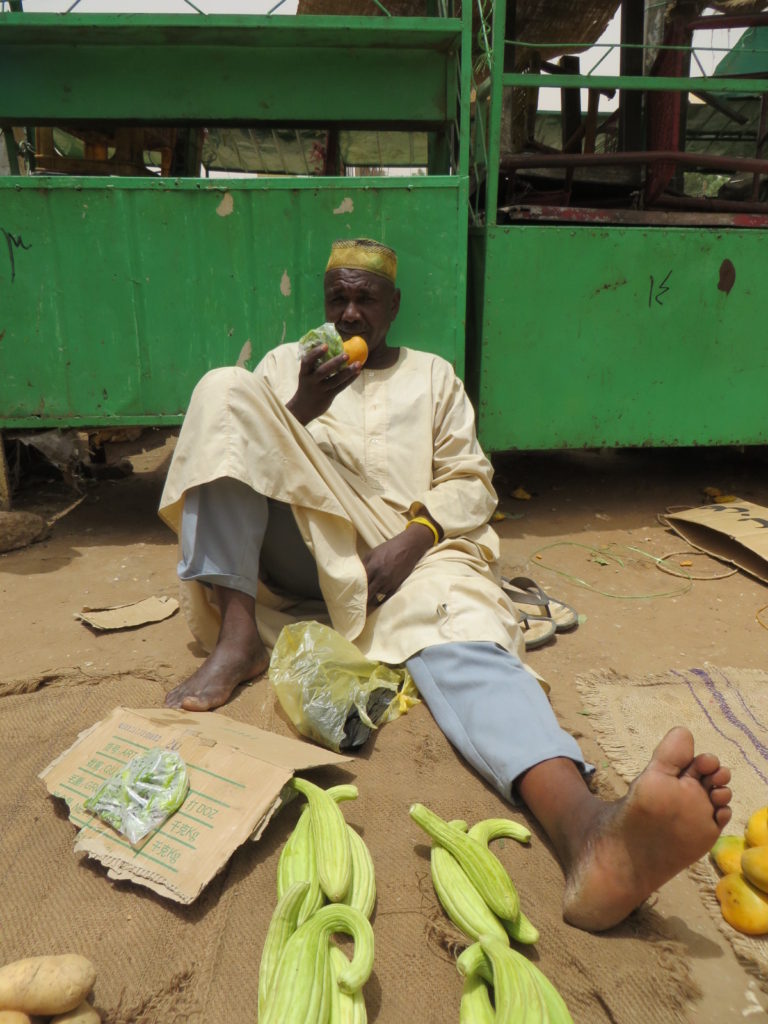
Sudanese market seller clearly unconcerned by the evils of colonialism
That’s not to say the Sudanese have fond memories of being gunned down in their thousands back in the 1880’s with that wonder of new fangled Victorian technology, the Maxim machine gun, for having the impertinence to reject British colonial oppression. However, on speaking to Sudanese who learnt I was English I soon found that it was me who had to remind them of our historic crimes, as they were too busy eulogizing the wonderful legacy of British domination. In my experience of talking to Africans they seem to have mostly moved on from colonialism a long time ago and the loudest voices condemning it are back in the West and just as likely to come from whites as blacks. Sudanese would talk about our links going back a long time as if we had shared games of cricket and cucumber sandwiches for the last century and a half.
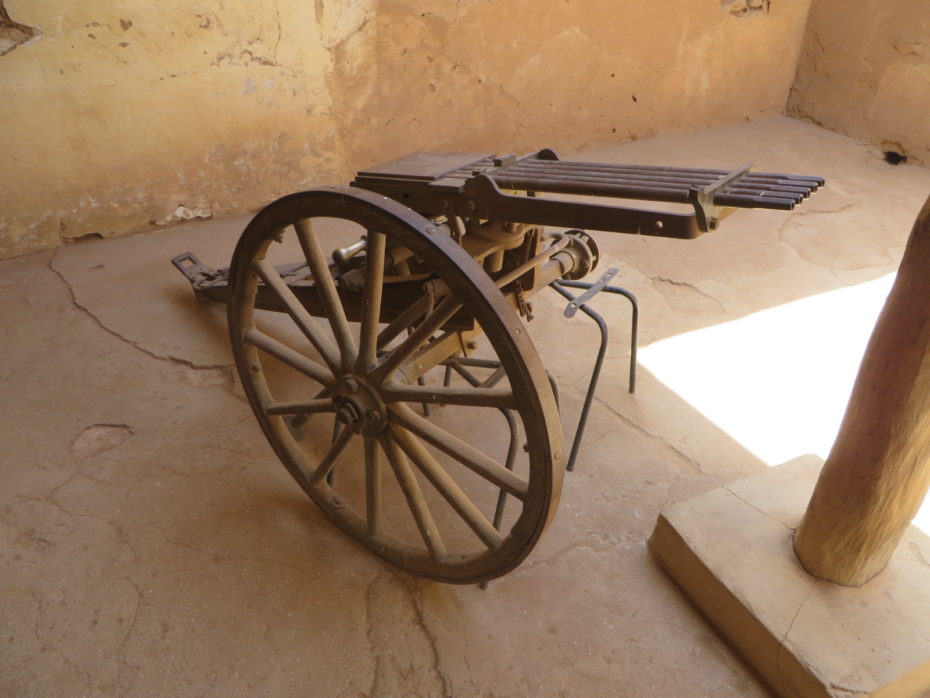
The Sudanese people’s first introduction to the wonders of modern technology – the Maxim machine gun
There must be a range of factors explaining this apparent contradiction, particularly as the Sudanese are hardly oblivious to contemporary, British machinations in the Middle East. George Bush or Tony Blair are unlikely to be welcomed with a ticker tape parade if they opted for a sun, sand and sharia holiday in the country.
You wont be surprised to learn that many Sudanese are not huge fans of their own government, even amongst those who don’t have the pleasure of Antonov bombers and Janjaweed militia doing target practice on them, such as the lucky residents of Darfur, South Khordofan and Blue Nile states get to experience on a regular basis. From the safe distance of Africa the fuzzy images of Britain and the West one sees a polished view of our lives, with a lack of wholesale corruption, having a functioning health service and the ability to protest about stuff without your family having to pick your body out of a ditch two weeks later. So, there is often a measure of aspiration in people’s opinion of Britain, “if only we could live like that”, they think. In many respects that may be true but it misses out on the drug problems, racism and pensioners dying in cold bedrooms, unknown to disinterested neighbours and distant family, along with other delights that characterise the downsides of our existence. The West can represent an alternative to the failings of their own country.
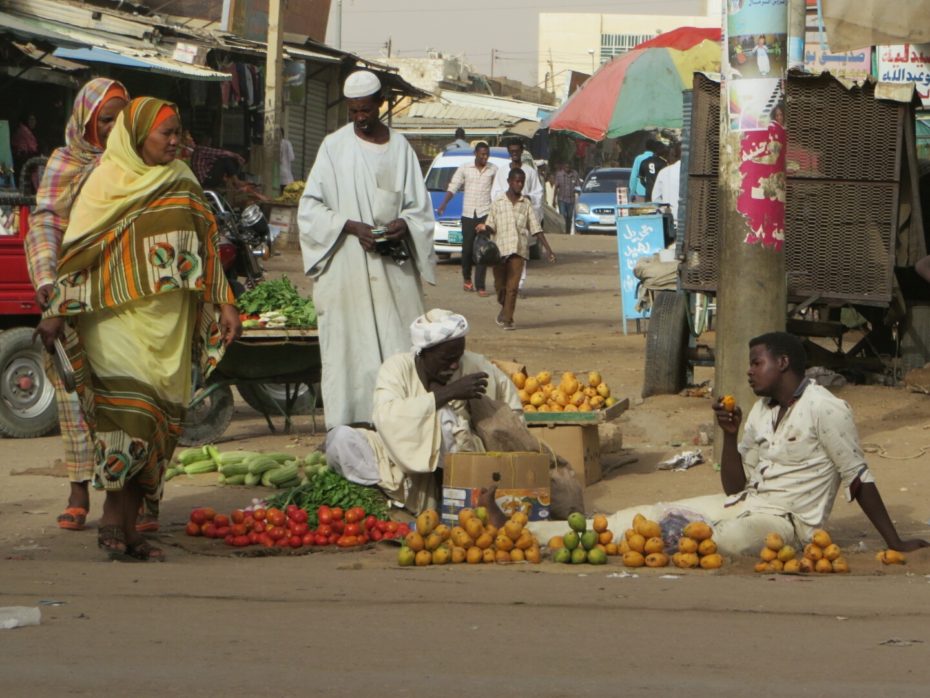
Streetlife, Al Ubayd
When there is much to complain about life, like corruption, lack of democracy and opportunities, it is easy to create a bit of nostalgia for the olden days when at least the British knew how to run things properly, a bit like when Italians allegedly said “at least Mussolini made the trains run on time”. Solid evidence remains such as an irrigation system that boosted agriculture and helps permit the country grow huge quantities of their beloved sugar, with which no drink is denied a hearty serving. No apologist for colonialism could leave without saying, “but we built them railways”, as well. However, the system is showing its age by now and the Chinese have stepped in to provide a nice, new, shiny train that doesn’t have quite so much trouble overtaking an ox cart like its predecessors. On a less physical level we at least bequeathed to the Sudanese some elements of civil society that the people see value in when their leaders are trying to take it away.
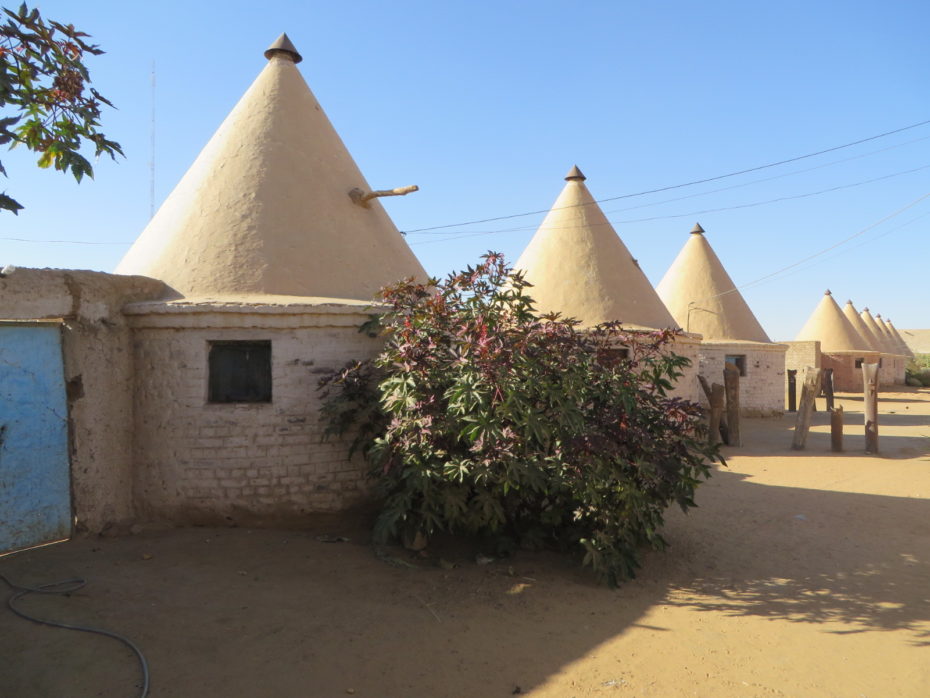
Railway cottages, Sudan style
One word that cropped up in these conversations on Britain was, “civilised”, in much the same way as I heard it in Bangladesh. The UK’s foreign policy could rarely be called civilised but this concept must be related to the introduction of western education. I don’t want you thinking that the British empire’s support for education in the colonies was an entirely noble and charitable venture, as it was largely driven by a condescending attitude of enlightening the ignorant savages and the simple, practical requirement of providing enough indigenous civil servants to run the country. There simply were not enough Brits to directly rule over the vast empire so we always had to co-opt some locals, often shrewdly empowering one group of people who were only too happy to Lord it over another group.
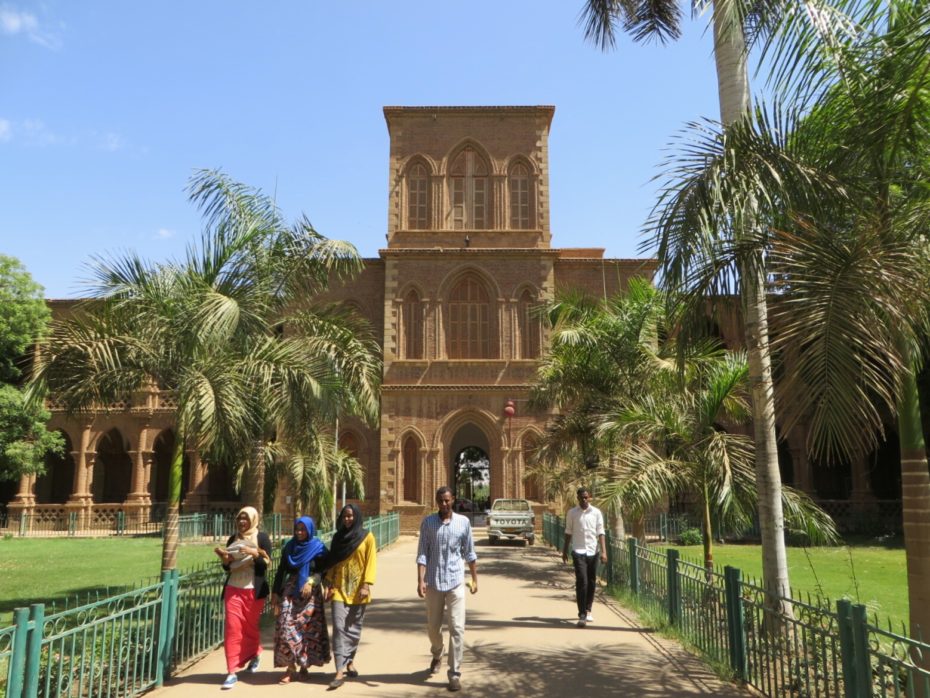
University of Khartoum
Islamic education at the time, for all its great, earlier achievements had failed to embrace western science enough to cope with modern developments, despite being the prime source for much of European scientific knowledge several centuries earlier. Hence, we built a University in Khartoum in 1902, named Gordon Memorial College, after our general who was killed in the siege of the city when the Sudanese, quite understandably had decided they wanted their country back. It still stands today and is recognised as one of Africa’s top educational establishments and is well thought of by its students who have recently fiercely defended it against government plans to relocate it and redevelop the city centre site. While I was in Khartoum, students were injured by police during a demonstration at the university, such is the level of feeling that the building is part of their heritage. Rather than regard the building as a symbol of former colonial power they have embraced it as their own but at least recognise some value in its British roots that have led to other universities springing up over the years after independence.
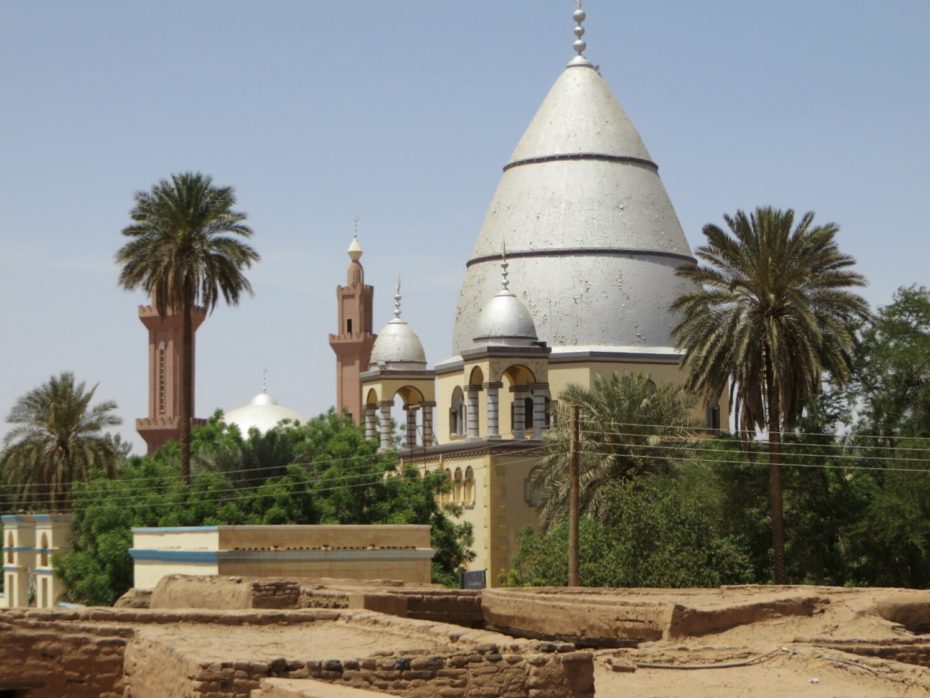
The tomb of the Mahdi, Sudan’s inspiring leader, whose battle of liberation against the British, known as the Mahdi uprising, was eventually beaten by superior firepower
Traditional education, much like our own in the colonial times was mostly for the men but things have changed and now the majority of students at Khartoum university are women, up to 70% a former student told me. It’s difficult to associate this shift with any British influence as it is happened only in more recent times and Muslim women can express their demands for equal educational opportunities firmly within an Islamic context. Although it is understood that western women have generally had more access to further education for longer, the oldest girl’s school was founded in 1907 by a Sheikh who recognised the value of girl’s education, only later was it assisted by the British.
If the British empire left one crowning achievement around much of the world, beloved by all, it has to be the love of football and Sudan is no exception. Whilst their national team is even worse than the English national excuse for one, it has only spurred on their adoration for the holy trinity of Man. United, Liverpool and Arsenal. So now, we can put aside all those years of massacres, exploitation and domination and rejoice in our shared love of the kingly virtues of kicking a ball around a field. The Sudanese have however failed to adopt that other, associated, great, British past time of kicking the crap out of people wearing the wrong team’s shirt.





V interesting post